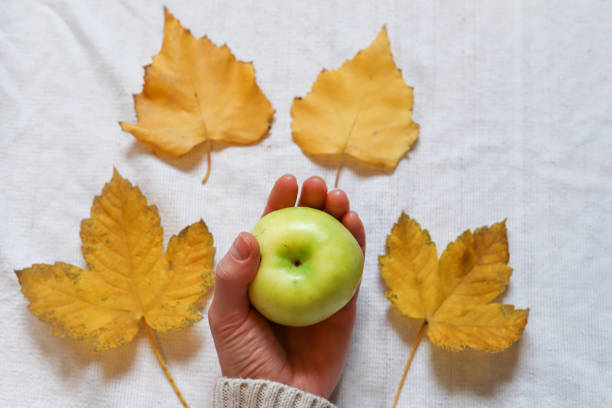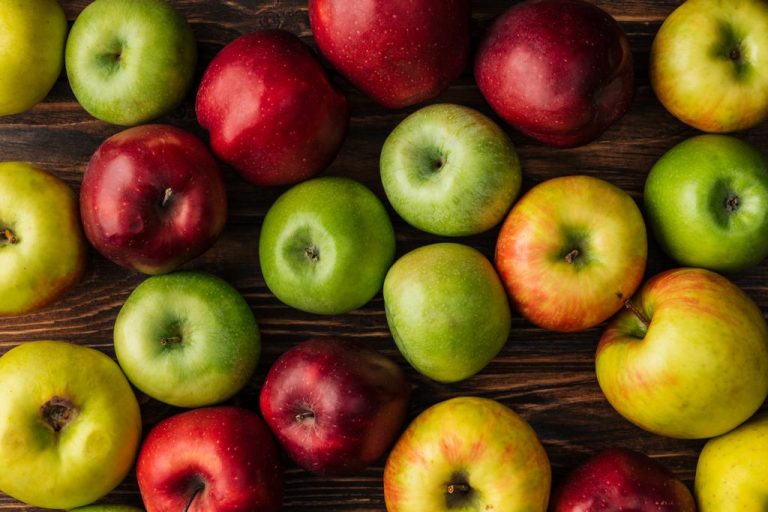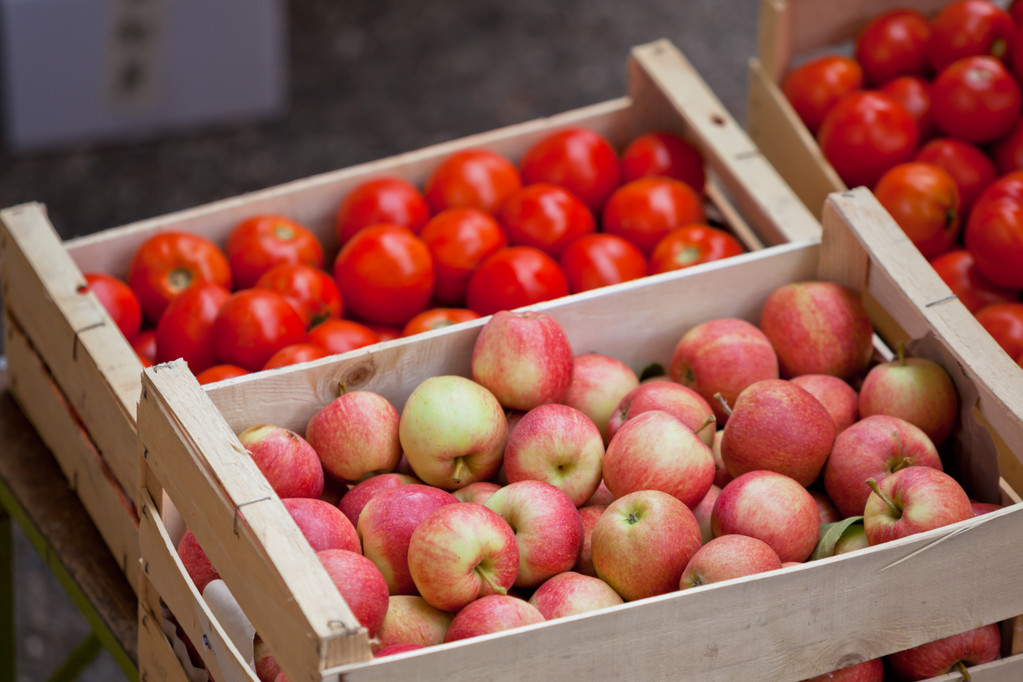Floury apples are not a great pleasure on their own, but can still be used in many ways in the kitchen. We will explain why apples become mealy, how to store them correctly and which recipes mealy apples are particularly suitable for.
If the apple tastes mealy, that is not a reason for most people to be happy: Many appreciate the popular fruit precisely because it is crisp and al dente when fresh. That can easily change if apples are stored too long or under the wrong conditions. Also, certain apple varieties are more prone to tenderness than others.
By paying attention to the differences between the different varieties and storing your fruit correctly, you can prevent apples from becoming mealy quickly. If it happens anyway, you can still use the mealy apples in many ways when cooking and baking. At the end of this article you will find some suggestions for this.
Are there particularly mealy apple varieties?

By nature, no apple variety is automatically mealy. However, some varieties are less suitable for storage and become mealy faster than others. These include in particular summer apples such as the white clear apple or the Grevensteiner. They cannot be stored for long and should be eaten no later than four weeks after harvesting. After that, they taste less fresh and crisp. The Golden Delicious also takes on a floury consistency if it is harvested late.
But there are plenty of apple varieties that, if stored well, last a long time and have a lower risk of becoming mealy. This applies above all to rather sour representatives, for example Boskoop, Jonagold and Elstar. But even sweeter varieties like Braeburn and Gala don’t become floury as quickly if you store them well.
This will prevent apples from becoming floury
Apples becoming mealy at some point is a natural process. You can therefore hardly prevent it in the long run. However, by storing your apples properly, you can at least slow down the process. You should note the following:
To avoid apples becoming mealy quickly, store them in a cool, dark place. A basement room is ideal for this. If you don’t have a basement, you can store the apples in the vegetable drawer of your refrigerator. However, you should make sure that they do not come into contact with any other types of fruit and vegetables.
Even if you don’t store apples in the fridge, you should store them separately from other fruits and vegetables. Apples give off the ripening gas ethylene, which allows other varieties to ripen faster. Keeping them away from the rest of your fruit will keep it fresh longer. The apples themselves also benefit from separate storage, because other fruits (e.g. bananas) can also accelerate the ripening of the surrounding fruit. This interaction contributes to the fact that apples lose their freshness faster and become mealy.
It is important that you leave enough space for each apple. This allows air to circulate between the fruits and they stay fresh for longer. It is therefore better not to store large quantities of apples crowded together in a sack, but side by side in a box. Ideally, you should also refrain from storing several layers of apples on top of each other: the specimens on the bottom can easily bruise due to the weight of the upper layers. If you cannot avoid stacking for reasons of space, you can prevent pressure points by separating the individual layers with corrugated cardboard. This way the weight is distributed better.
This is how you can use mealy apples in the kitchen

Floury apples may not taste as good on their own as crunchy ones. If they are still good apart from that, you don’t have to throw them away: There are even more uses for mealy apples in cooking and baking than for those with firm and crunchy flesh.
But floury apples are also ideal for other recipes. Among other things, you can use them to prepare the filling for apple turnovers or apple strudel. They also make a good base for apple sauce, apple jam, apple jelly or apple chutney. So by overcooking mealy apples instead of throwing them away, you can try a variety of delicious recipes while avoiding unnecessary food waste.









